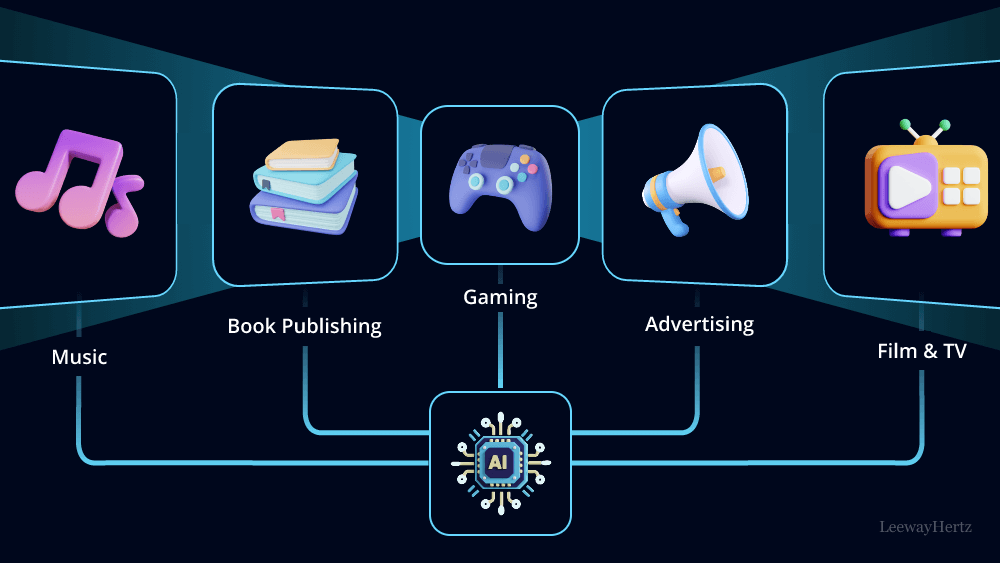-
Fil d’actualités
- EXPLORER
-
Pages
-
Groupes
-
Evènements
-
Reels
-
Blogs
-
Offres
-
Emplois
Generative AI Transforming Media and Entertainment Industry

Generative AI is rapidly reshaping the media and entertainment landscape, introducing new creative possibilities and revolutionizing content production. By leveraging advanced machine learning algorithms, generative AI can create realistic images, videos, music, and text, allowing studios and content creators to produce high-quality media at unprecedented speed and scale. This technology is particularly beneficial in film, animation, and gaming, where generating complex visuals and immersive environments typically demands significant time and resources. With generative AI, artists can experiment with ideas more freely, reducing production bottlenecks while enhancing the overall creative process.
In film and television, generative AI assists in scriptwriting, character design, and scene generation. AI models can draft dialogue, suggest plot twists, and even generate storyboard visuals, helping writers and directors visualize their ideas before committing to full production. Similarly, in the gaming industry, AI can generate lifelike environments, non-playable characters (NPCs), and intricate storylines, creating more engaging experiences for players. Music production has also benefited from generative AI, with algorithms capable of composing original tracks, remixing existing pieces, or assisting producers in sound design. This fusion of human creativity and AI-driven assistance allows creators to push the boundaries of artistic expression while maintaining efficiency.
Advertising and marketing sectors within media are increasingly adopting generative AI to personalize content and enhance audience engagement. AI can produce tailored advertisements based on user preferences, ensuring relevant and compelling messaging. Visual effects (VFX) and post-production workflows also leverage AI tools to automate repetitive tasks such as background replacement, facial animation, or color grading. By streamlining these processes, studios can reduce production costs and shorten project timelines without compromising quality. Moreover, generative AI aids in localization, automatically translating and adapting media content for different languages and cultural contexts, broadening its global reach.
Despite its potential, the adoption of generative AI in media and entertainment raises ethical and legal considerations. Concerns around copyright, intellectual property, and content authenticity are prominent, as AI-generated work may unintentionally replicate existing creations. Additionally, the risk of deepfakes and misinformation highlights the need for responsible usage and regulatory oversight. Media companies must balance innovation with accountability, ensuring AI-generated content aligns with ethical standards while maintaining audience trust.
Source - https://www.marketresearchfuture.com/reports/generative-ai-in-media-and-entertainment-market-12189
Overall, generative AI is revolutionizing the media and entertainment industry by empowering creators, enhancing efficiency, and enabling entirely new forms of storytelling. From film and gaming to music and advertising, AI-driven tools are transforming traditional workflows, reducing production constraints, and opening avenues for creativity previously considered impossible. As technology continues to advance, the integration of generative AI will likely become an essential component of media creation, shaping the future of entertainment for audiences worldwide.
- Art
- Causes
- Crafts
- Dance
- Drinks
- Film
- Fitness
- Food
- Jeux
- Gardening
- Health
- Domicile
- Literature
- Music
- Networking
- Autre
- Party
- Religion
- Shopping
- Sports
- Theater
- Wellness
